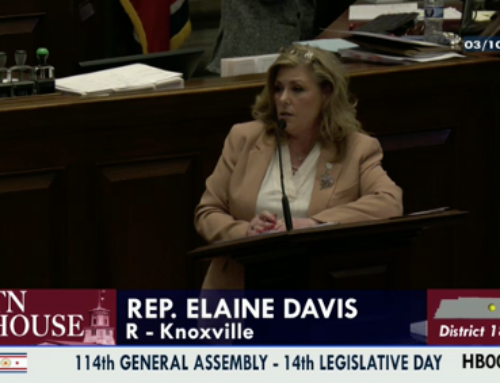‘Advisory board’ that would oversee Memphis school board would be exempt from Open Meetings Act
An advisory board that could oversee the Memphis Shelby County School Board, including influence over removing school board members, would be given an exemption to the Open Meetings Act under the Senate version of a bill that will be voted upon today.
Sen. Brent Taylor, R-Memphis, is sponsoring SB714 that would allow the state to appoint a nine-member advisory board of managers. The board would meet regularly and create a “transformation plan” for the district to be reviewed and updated annually. The board of managers would also be allowed to make recommendations on any item on the school board’s agenda, which must be read into the minutes.
Senate version allows secret board meetings
In addition, the board of managers could assist the state education commissioner in evaluating any school board member and recommend board members for removal from their elected positions. The State Board of Education would be allowed to remove an elected school board member.
The Senate bill specifically states that the board of managers would not be subject to the open meetings law. During the presentation of the bill in committees, no senator questioned why the board would be able to operate secretly, including deciding what its recommendations would be and why. The bill does call for the board to hold what appears to be a perfunctory open meeting “to adopt the advisory board’s recommendations to the local board of education … including the results of a comprehensive needs assessment and to adopt a transformation plan.”
The Senate version differs from the House version of the bill, HB662, which Rep. Mark White, R-Memphis, sponsors.
House version requires compliance with Open Meetings Act
The House version, which is the last on today’s House floor calendar, allows the creation of a nine-member oversight board. The bill states that the board shall comply with the Open Meetings Act.
One of the main powers of the oversight board would be to approve the school district’s budget. If the oversight board vetoes the budget, the school board must revise the budget according to the oversight board’s recommendations. If it does not, the oversight board will submit its own budget to the school board for approval.
Both boards would largely be appointed by governor, House and Senate
In the House proposal, the governor and speakers for the state Senate and House would appoint the members of the oversight board.
In the Senate proposal, the advisory board of managers would comprise three appointees by the governor and four by the Senate and House speakers. The other two people on the board would be the Memphis city mayor and the Shelby County mayor, or their designees.
If the Senate and House pass different versions, the bill could go to a conference committee appointed by the Senate and House speakers to work out the differences. This meeting is usually open to the public, but it’s unclear what day a conference committee might meet. It’s also possible that the House or the Senate will simply adopt the other chamber’s version of the bill.
Both Taylor and White said that changes need to be made in Memphis after the school board terminated its director of schools just months into the job and because Memphis schools are underperforming.
See more news stories that go into detail about the differences in the House and Senate versions:
- Commercial Appeal: More changes to MSCS takeover bill as it moves out of committee
- The Daily Memphian: Last-minute updates move MSCS takeover proposals toward compromise
- Chalkbeat Tennessee: Tennessee bills on Memphis school intervention outline powers of state-appointed boards




